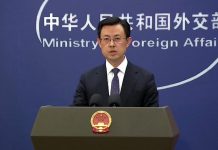The news that the US Federal Reserve is planning to tighten up US interest rates next month has seen investors pull their capital out of Thailand’s bond market and send it back to the US to take advantage of higher interest rates.

Economists at Maybank Kim Eng Securities Thailand saw significant capital outflow following Janet Yellen’s announcement, which they say has weakened the baht in the short term.
Baht Slumps following Fed Announcement
Before news of a possible hike in US interest rates, the baht was one of the five strongest currencies in the region after appreciating 2-3% since the start of 2017. Speculators moving money into short-term government bonds have caused the appreciation, so a significant flow of money back overseas will inevitably cause a slump in the value of the baht.
Weak Baht Damages Manufacturing and Exports
A weak baht and strong USD does little to help exporters in Thailand. It also damages manufacturing as manufacturers are forced to pay more for their raw materials. Companies with high costs may have to adjust their business expenditure to hedge against further depreciation in the baht.
If the trend continues, which it might if the US Federal Reserve elects to raise interest rates for a second time later in the year, some companies will have little choice but to cut salaries for employees. Businesses with heavy foreign debt are in a better position, as they are hedged against further baht depreciation.
Government Fiscal Stimulation Package
Overall, though, the picture is not as gloomy as it might be. The Thai economy expanded by 3% in the last quarter of 2016, although this was slightly down on the previous quarter. In response to the slight depreciation in economic growth, the government announced a US$5.4 billion fiscal stimulation package. Much of the money is to be disbursed to rural areas, but the money is likely to spill over into the larger economy in the form of increased employment and private consumption.
For businesses in Thailand, the economic outlook is uncertain. The government is committed to providing further economic stimulus during 2017 to maintain a positive GDP, so business sentiment is unlikely to falter too much. However, it is important that SMEs keep a tight rein on their costs and avoid accruing too much debt. For this reason, small businesses should consider adding personal servicing from RSM to the accounting side of their business, as this will help them to manage any further depreciation of the baht.
New Tax Measures for SMEs
In the meantime, SMEs are advised to pay close attention to new government measures to curb endemic tax evasion in Thailand. With only 40% of the 2.6 million SMEs in Thailand registered in a new government tax scheme, the Revenue Department has vowed to track down criminal tax evasion.




